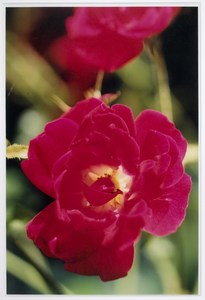Born in Geldern, Germany, Thomas Struth graduated in 1980 from the Academy of Fine Arts in Düsseldorf, where he had studied with Gerhard Richter and Bernd Becher. He dedicated himself to photography full-time in 1983 and exhibited urban landscapes of Rome, Tokyo, and other cities that he had been producing since 1980. In 1983-1984, he worked with the psychologist Ingo Hartmann on an anthology of photographs entitled Familienleben (Family Life), which presented families through groups of individual portraits. In the late 1980s he began a series of large color photographs of people looking at paintings in major museums around the world--an observation of observation that attracted a great deal of critical attention. Struth's photographs have been shown at P.S. 1 in New York City, Documenta IX in Kassel, the Venice Biennale, the Hirshhorn Museum in Washington DC, and Boston's Institute of Contemporary Art. Struth has also done architectural studies of districts and towns in Europe and made black-and-white enlargements of hitherto unpublished negatives by the turn-of-the-century German photographer Heinrich Zille.
Building on the foundation of first- and second-generation Neue Sachlichkeit (New Objectivity) photography in Germany, Struth makes photographs that cohere in their suggestion of individual interiority despite a range of subject matter. His seemingly objective observations of twentieth-century subjects, ranging from urban topography to family resemblance to cultural consumption, successfully identify a sense of place and character behind typically generic public facades. His work demonstrates our visual complacency by pointing out the habitual viewing patterns of contemporary culture.
Lisa Hostetler
Handy et al. Reflections in a Glass Eye: Works from the International Center of Photography Collection, New York: Bulfinch Press in association with the International Center of Photography, 1999, p. 229.






